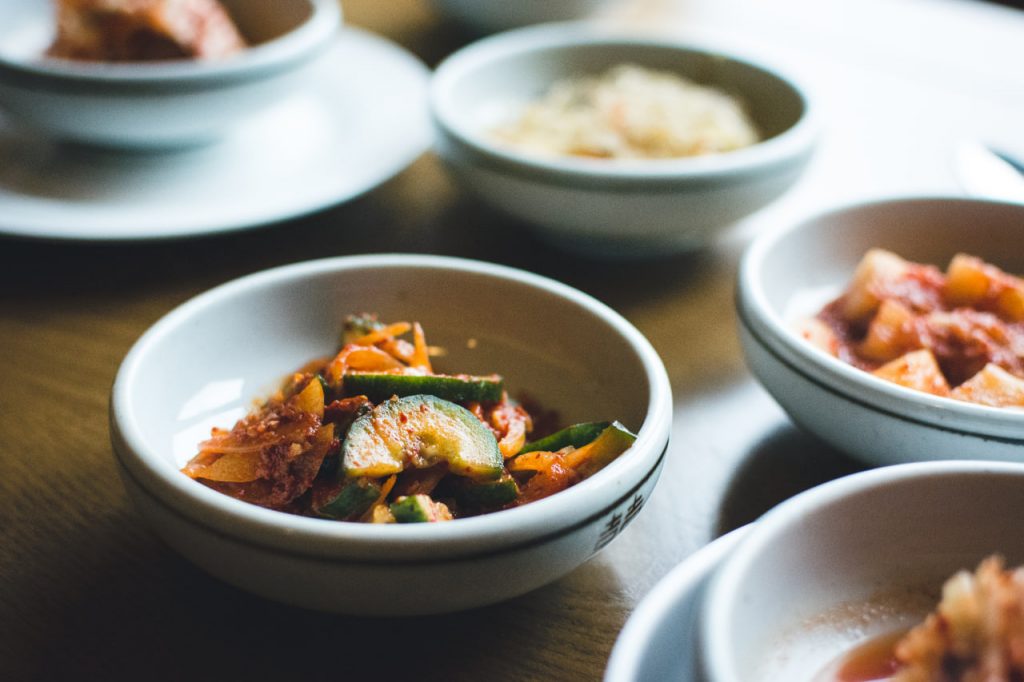As a longtime fan of Korean food, kimchi has always been one of my absolute favorites. I’ve enjoyed it at restaurants, paired with every dish imaginable, and even bought jars from the store—but there was one thing I hadn’t done yet: make it myself.
When I stumbled upon Korean Fermented Kitchen, I was immediately intrigued. The idea of learning how to craft my own kimchi from scratch felt like an adventure, and I knew I had to sign up. So, I booked a spot for their hands-on kimchi workshop, and I’m so glad I did. What I thought would be a fun afternoon quickly became one of the most enlightening and satisfying culinary experiences I’ve ever had.
Stepping into the World of Fermentation
The moment I walked into the kitchen, I could feel the welcoming atmosphere. The space was bright, warm, and smelled like the heart of Korean cooking. The best part? It didn’t feel like a typical cooking class. It felt more like I was invited into someone’s home kitchen—a place where tradition, stories, and flavors are passed down through generations.
Our instructor, Soojin, greeted us with a friendly smile and shared her passion for fermentation right away. She explained that kimchi isn’t just food; it’s a living, breathing part of Korean culture. As she told us about the history of kimchi and its health benefits, I felt a deep sense of respect for this food that I had always enjoyed but never fully understood.
The Hands-On Experience
Then came the fun part—actually making the kimchi! Soojin walked us through each step of the process, from choosing the right napa cabbage to preparing the spice paste (and trust me, it’s more than just chili powder!). She explained the importance of each ingredient, like the fish sauce for umami and the ginger for a subtle kick. We all got our hands dirty, massaging the salt into the cabbage leaves and layering them with the chili paste.
I’ll be honest, I was a bit nervous at first. I’d never worked with fermented ingredients before, and I wasn’t sure if I’d get the process right. But Soojin’s patient, step-by-step guidance made everything so easy to understand. By the time we finished, I was surprised at how simple the process was—and how delicious the kimchi looked!
The Surprises Along the Way
What surprised me the most was how much attention to detail goes into making perfect kimchi. There’s an art to balancing the spicy, sour, salty, and umami flavors. Soojin explained how fermentation time plays a huge role in developing those complex flavors and how different temperatures can speed up or slow down the process.
It was also eye-opening to learn about the health benefits of kimchi. I had heard that it’s great for digestion, but Soojin shared how the probiotics in fermented foods can boost your immune system, improve gut health, and even contribute to glowing skin. It was fascinating to see how this simple, humble dish is packed with so much goodness.
Bringing It Home
Once our kimchi was ready, we each packed up a jar to take home. I couldn’t wait to try mine! After letting it ferment for a few days, I tasted my first batch, and I was amazed at how close it was to the kimchi I’d enjoyed in restaurants. The flavor was perfectly balanced—spicy, tangy, and full of depth.
Since that day, I’ve been making kimchi regularly, experimenting with different spices and ingredients. But more than just the flavor, it’s the connection to the culture and the craft of fermentation that keeps me coming back. Every time I make it, I’m reminded of the rich history and traditions behind this beloved Korean dish.
Why You Should Try It
If you’ve ever thought about making your own kimchi, I can’t recommend Korean Fermented Kitchen enough. The workshop was not only educational but also incredibly fun. Soojin’s passion for Korean food and fermentation made the entire experience unforgettable. It’s not just about making kimchi—it’s about understanding the story behind it, connecting with the process, and discovering something new every time you ferment.
Whether you’re a beginner like me or a seasoned home cook, there’s something special about learning from experts who genuinely care about preserving and sharing their culinary heritage. I’m so glad I took the plunge into fermentation, and I look forward to learning even more at Korean Fermented Kitchen.
If you’ve been curious about fermentation and want to learn how to make your own kimchi (or dive deeper into Korean fermentation), I highly recommend checking out their workshops. Trust me, it’ll be an experience you won’t forget—and your taste buds will thank you!

